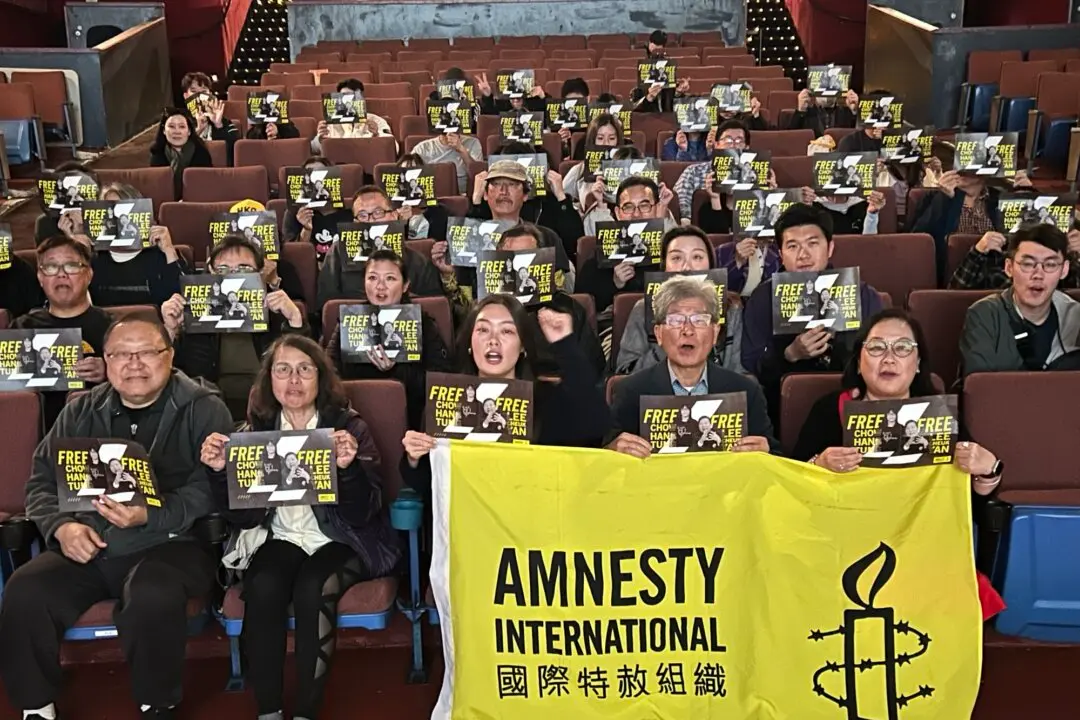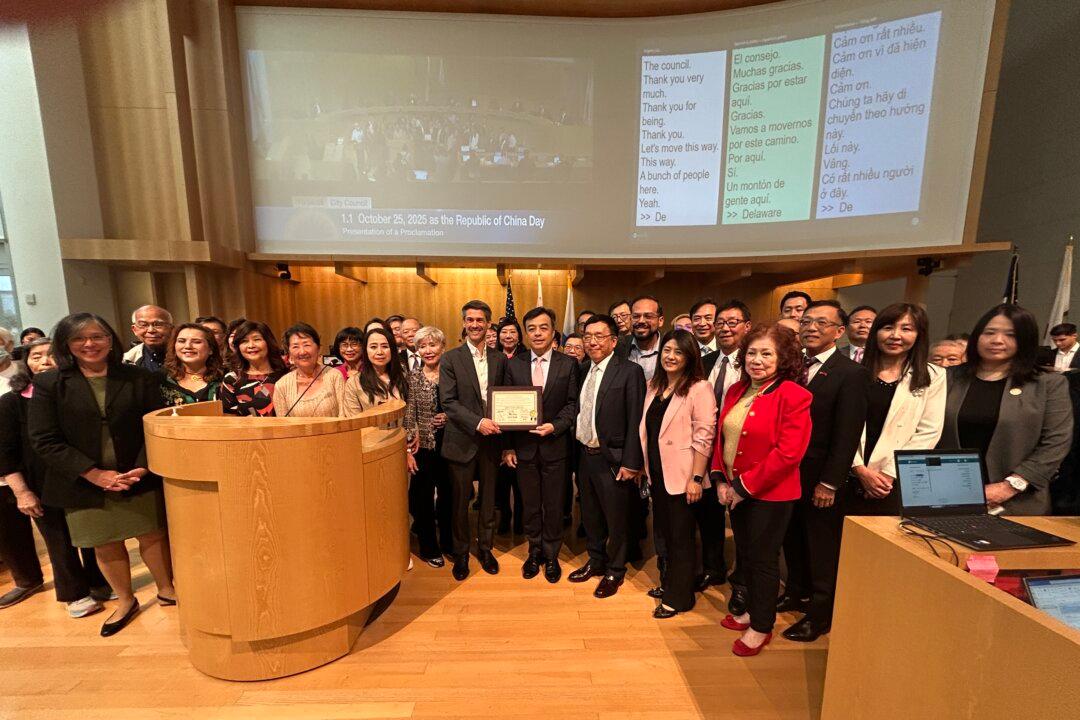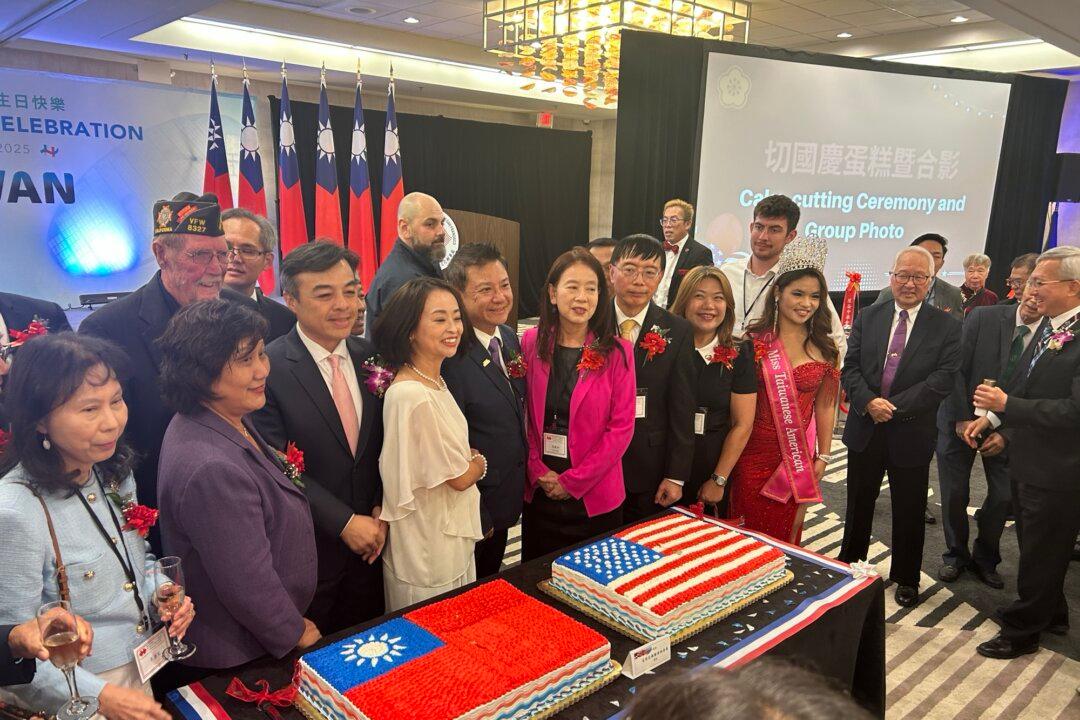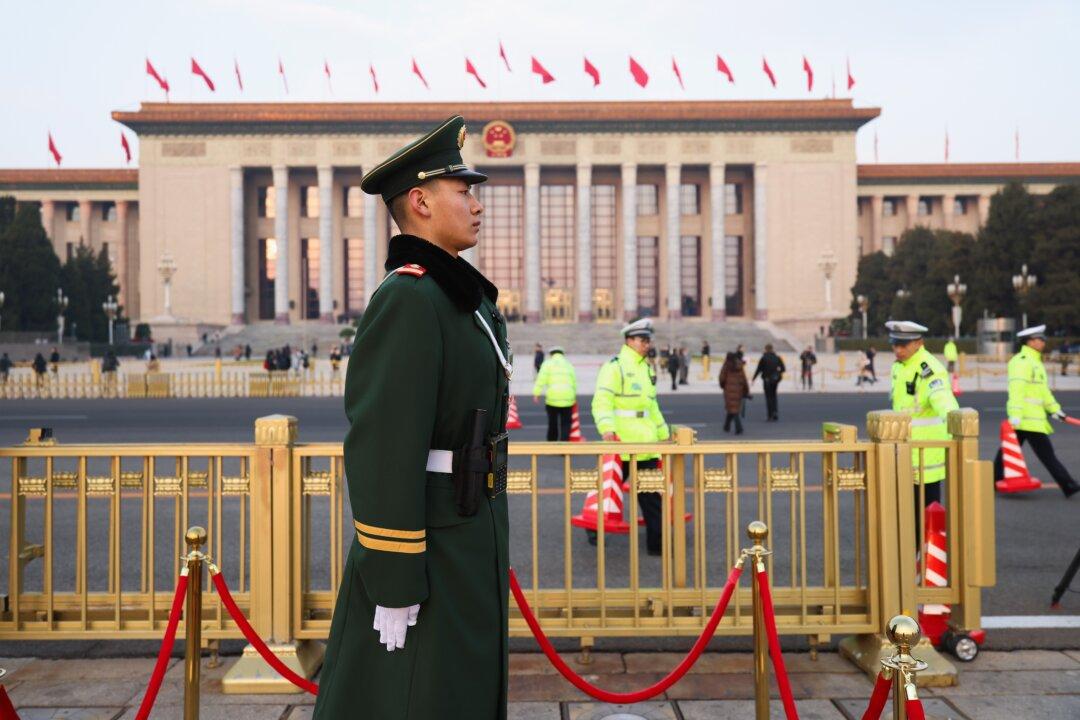The federal government and the city of San Francisco appear to be on a collision course over the operation of public facilities for the purpose of injecting illegal drugs, known as safe injection sites (SIS).
Mayor London Breed toured a mockup of an SIS—no injecting is taking place yet—at its grand opening on Aug. 29. The site, called Safe Inside, is located in the Glide Memorial Church in the city’s Tenderloin District. It remained open through Aug. 31 for the public to tour.





